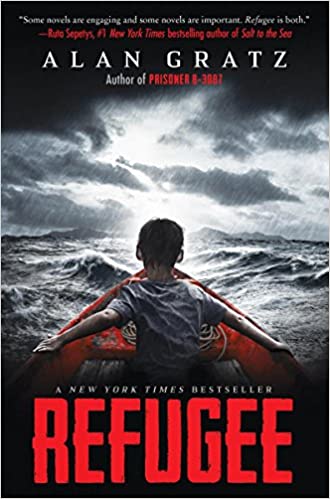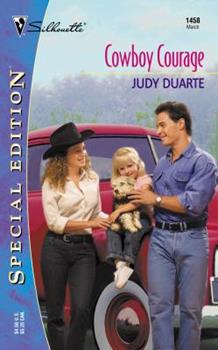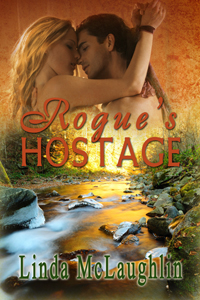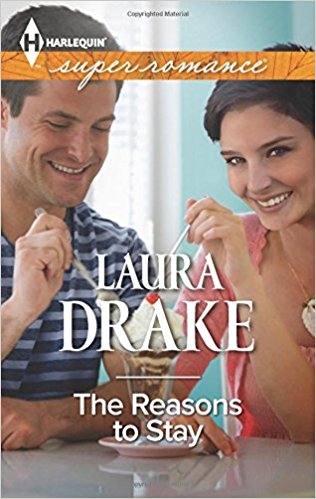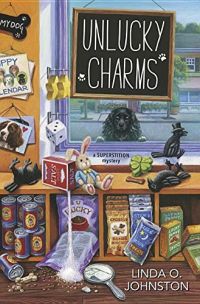Melody of Love Contest
September 4, 2017 by marianne h donley in category Writing Contest tagged as MCRW, Melody of Love Contest, Writing contestsTHE 2017 MELODY OF LOVE: A Contest for Unpublished Romance Novels
Sponsor: Music City Romance Writers, Nashville, TN
Fee: $20–35; critique of optional blurb for additional $10.
Deadline: Contest Opens August 15, 2017 with a deadline of September 15, 2017.
Official Rules: http://musiccityrwa.blogspot.com/2017/08/2017-melody-of-love-rules.html
Enter: http://musiccityrwa.blogspot.com/2017/08/2017-melody-of-love-entry-form.html
Eligibility: The MOL Contest is open to unpublished writers and published authors of novel-length fiction. The author does not have to be a member of Romance Writers of America® (RWA) to enter the MOL Contest; however, the entry must be the author’s original work of novel length, unpublished, and not contracted at the time of the contest deadline.
Entry: All electronic. Must be the first 15 pages of a full-length novel with (minimum length 50,000 words). No novellas or short stories. All heat levels are accepted across all categories. A short blurb (optional/non-judged unless critique requested for additional fee) of no more than 200 words may be included.
Categories: Contemporary, Historical, Paranormal, and Young Adult Romance; “Wild Card” Category for Novels with Romantic Elements
Preliminary Judges: Published, PAN/PRO and unpublished authors. All entries will be read and judged by three trained judges, at least one of whom will be a published author or a member of RWA PRO. Lowest score will be dropped.
Final Judges: Editors and Agents.
Contemporary—Jennie Conway (Editor, St. Martin’s Press), Janna Bonikowski (Agent, the Knight Agency);
Historical—Jennie Conway (Editor, St. Martin’s Press), Amanda Jain (Agent, Inklings Literary);
Paranormal—Sarah Blumenstock (Editor, Penguin Random House), Victoria Lea (Agent/Editor, Aponte Literary/Aponte-Burns Publishing);
Young Adult—Annette Pollert -Morgan (Editor, Sourcebooks), Elizabeth Poteet (Agent, The Seymour Agency);
“Wild Card”—Victoria Lea (Agent/Editor, Aponte Literary/Aponte-Burns Publishing), Latoya Smith (Agent, L. Perkins Agency)
Finalists will be announced around November 1, 2017. Projected announcement of winners December 1, 2017.
Top Prize: Finalists in each category will receive a certificate and announcement in RWR and the MCRW website. #1 Finalist in each category will also receive a $25 cash prize. Each entry has a chance to win a 50 page professional critique. Winner selected by random drawing.
Entries capped at 60. Enter soon for your chance to win, because we fill up fast!
For more information, the official rules are now available and the contest coordinator DB Sieders can be emailed at contest@mcrw.com
Sponsor: Music City Romance Writers, Nashville, TN
Fee: $20–35; critique of optional blurb for additional $10.
Deadline: Contest Opens August 15, 2017 with a deadline of September 15, 2017.
Official Rules: http://musiccityrwa.blogspot.com/2017/08/2017-melody-of-love-rules.html
Enter: http://musiccityrwa.blogspot.com/2017/08/2017-melody-of-love-entry-form.html
Life and Times of 1950s: Traveling…in a Plane
September 3, 2017 by Janet Elizabeth Lynn and Will Zeilinger in category Partners in Crime by Janet Elizabeth Lynn & Will Zeilinger tagged as Janet Lynn, Life and times of the 1950s, research, Will Zeilinger
My husband and I co-write the Skylar Drake Murder Mysteries, a hard-boiled detective series. Since the stories take place in 1955 we have researched a great deal of that era.
In the second book of the series, Strange Markings, Skylar is hired to investigate the missing nephew of a Los Angeles matron. Clues takes him to pre-statehood Hawaii (1955). As a result, we looked into commercial airlines of the ’50s.
We learned that the Pan American Airlines made frequent flights to Hawaii using 377 Stratocruisers. We also found something called Sleeper-ettes, and early first class attempt to provide comfortable sleeping arrangements for their passengers. Lobster counted as first class airline food. I found an old ad from TWA mentioning a, “full meal to be served in-flight”. That would have included: soup, salad, meat, vegetables, and dessert. And drinks was served in glassware!
Our fourth book in the series, Spike Hill, will be released February 2018, and yes… we are still married.
Janet
 Janet Elizabeth Lynn and Will Zeilinger
Janet Elizabeth Lynn and Will Zeilinger
Published authors Will Zeilinger and Janet Lynn had been writing individually until they got together and wrote the Skylar Drake Mystery Series. These hard-boiled tales are based in old Hollywood of 1955. Janet has published seven mystery novels and Will has published three plus a couple of short stories. Their world travels have sparked several ideas for murder and crime stories. This creative couple is married and live in Southern California.
www.janetlynnauthor.com
http://www.willzeilingerauthor.com/
www.themarriedauthors.blogspot.com
An Interview with Regency Author Alina K. Field
September 2, 2017 by Jann Ryan in category Jann says . . . tagged as Regency History, Regency romance Award-winning author Alina K. Field earned a Bachelor of Arts Degree in English and German literature, but she found her true interest in reading and writing romance. Though her roots are in the Midwest, after six very, very, very cold years in Chicago, she moved to Southern California and hasn’t looked back. She shares a midcentury home with her husband and a blue-eyed cat who conned his way in for dinner one day and decided the food was too good to leave. For more information about Alina and her novels please visit her website – http://alinakfield.com/
Award-winning author Alina K. Field earned a Bachelor of Arts Degree in English and German literature, but she found her true interest in reading and writing romance. Though her roots are in the Midwest, after six very, very, very cold years in Chicago, she moved to Southern California and hasn’t looked back. She shares a midcentury home with her husband and a blue-eyed cat who conned his way in for dinner one day and decided the food was too good to leave. For more information about Alina and her novels please visit her website – http://alinakfield.com/
Jann: Today I’m talking with the delightful Regency Romance Author, Alina K. Field. Welcome Alina to A Slice of Orange.
What are you working on now? Can you tell us about your next project?
 Mary: I’m working on promo for The Viscount’s Seduction, book two in my Sons of the Spy Lord series, which is available on pre-order and releases September 12, 2017. Meanwhile, I’m getting Book 3, The Rogue’s Last Scandal, ready for an editing deadline a few very short weeks away. These are Regency-set romances, high on adventure, and I’m having a lot of fun with them. Which doesn’t mean I’m not biting my fingernails a lot trying to get everything right!
Mary: I’m working on promo for The Viscount’s Seduction, book two in my Sons of the Spy Lord series, which is available on pre-order and releases September 12, 2017. Meanwhile, I’m getting Book 3, The Rogue’s Last Scandal, ready for an editing deadline a few very short weeks away. These are Regency-set romances, high on adventure, and I’m having a lot of fun with them. Which doesn’t mean I’m not biting my fingernails a lot trying to get everything right!
Jann: How do you stay motivated? What drives you to keep writing?
Mary: Writing is fun! Yes, getting the words on the page can be agonizing, the promo requirements annoying, the rejection demoralizing, but there are downsides to any business. And I do see this as a business, with a goal to entertain readers who like the same sort of story I like.
When I left my last career, I knew I wanted to do something with what I always felt was my true calling—writing. What a blessing to land in this business during the middle of an industry revolution and the blossoming of indie publishing. Long-term, my goal is to keep writing the best stories I can, and to build up a body of work—income-producing intellectual property I can leave to my heirs.
Jann: What’s the funniest (or sweetest or best or nicest) thing a fan ever said to you?
 Mary: Regarding The Bastard’s Iberian Bride, book one in this series, my next-door neighbor told me she loved it and it even made her cry.
Mary: Regarding The Bastard’s Iberian Bride, book one in this series, my next-door neighbor told me she loved it and it even made her cry.
And, an Amazon reviewer said this about that same book: “Now this is what I like in a romance book! There’s mystery, anticipation, surprises, a little humor, a little sex, an evil villain, no cheating, no cliffhanger, and a happily ever after.”
That’s what I like in a story also!
Jann: What’s the best writing advice you ever received?
Mary: “Do it your way.” Of course, you must learn craft, but how you go about that can be as unique as you are. How many words you write and when are all up to you, as is how you get input, and from whom. The genre or subgenre you write, the themes, tone, and level of sexual content you choose—they’re all up to you.
Readers are unique and have different tastes. (Oh boy, is that true–ask any author looking over contest judging results!) If you have the basics of craft down, somewhere in this world full of many billions of literate people, there are readers who will enjoy your stories.
When my muse starts to choke, I remind her she’s free to write whatever she wants. The only absolute rule is to do my best to tell a story that resonates with my readers.
Jann: What’s your favorite movie?
Mary: I gravitate toward action/adventure films. I love the Bourne movies and The Accountant. Those are pure escapism. Among the more thoughtful contemporary movies, favorites are Michael Clayton, A Good Year, and The Good Shepherd.
I’m a huge history nerd and I loved Master and Commander, but my very favorite historical (so far) is Zulu, a 1964 movie starring a very young Michael Caine as Gonville Bromhead (gotta love that name), as well as Stanley Baker, who also produced the film. Nigel Green is amazing as the Colour Sergeant. I’m going to go look for my DVD and watch it again this weekend!
Jann: Do you have a website, blog, twitter where fans might read more about you and your books?
Mary: Yes! And I blog at least once a week about topics that interest me, like historical research, projects I’m working on, or my friends’ new books. This year I’m participating in a fun weekly blog hop with authors from Marketing For Romance Authors, including fellow historical romance author and OCCRWA member, Linda McLaughlin.
I also have a Facebook page, and inspiration boards on Pinterest for each of my books.
Here are my links:
https://www.facebook.com/alinakfield
https://twitter.com/AlinaKField
https://www.goodreads.com/author/show/7173518.Alina_K_Field
https://www.pinterest.com/alinakf/
https://www.instagram.com/alinak.field/
https://www.bookbub.com/authors/alina-k-field
Newsletter signup: http://eepurl.com/4nU5T
Thank you Alina K. Field for taking time to be with us today to answer our questions. If you have comments or questions for Alina, please use the comment form below. Also, Alina’s books are available here on A Slice of Orange.
Jann Ryan
 Jann Ryan grew up with the smell of orange blossoms in Orange County in sunny Southern California, where she has lived her entire life and dreamed up stories since she was a young girl. Never an avid reader, she was in her thirties when she picked up her first romance quite by accident. She fell in love with happily ever after and has been reading romances ever since.
Jann Ryan grew up with the smell of orange blossoms in Orange County in sunny Southern California, where she has lived her entire life and dreamed up stories since she was a young girl. Never an avid reader, she was in her thirties when she picked up her first romance quite by accident. She fell in love with happily ever after and has been reading romances ever since.
Wanting to put pen to paper, Jann joined of Romance Writers of America®. Currently, she is working on a romantic suspense series set in Stellar Bay, a fictitious town along the California central coast to fulfill her publishing dream.
Geralyn Corcillo: Featured Author of the Month
September 1, 2017 by marianne h donley in category Featured Author, Featured Author of the Month tagged as Drakenfall, Featured author, Geralyn Corcillo, In Love in the Limelight, Short Stories
About Geralyn Corcillo
When she was a kid in Scranton, Pennsylvania, Geralyn Vivian Ruane Corcillo dreamed of one day becoming the superhero Dyna Girl. So, she did her best and grew up to constantly pick up litter and rescue animals. At home, she loves watching black & white movies, British mysteries, and the NY Giants. Corcillo lives in a drafty old house in Hollywood with her husband Ron, a guy who’s even cooler than Kip Dynamite.
And She Loves to Connect with Readers!
Check out her monthly post here on A Slice of Orange and drop by to see her daily posts on Facebook and Twitter where she would be thrilled to comment back and forth with you. And you can sign up for her RomCom Alerts emails to get access to exclusive content, deals, freebies, contests & more!
A Few of Her Books
Is the F-word a bomb?
August 31, 2017 by The Extra Squeeze in category The Extra Squeeze by The Extra Squeeze Team, Writing tagged as HO Charles, Jenny Jensen, Rebecca Forster, The Extra Squeeze, The F bomb, writing
What does the Extra Squeeze Team think about the F-word?
Is the F word a bomb?
We’ve read books with it all over the place and yet notice that readers object to it.
Does anyone really like using it?
Would another word do?
When was it necessary?

Rebecca Forster
USA Today Bestselling author of 35 books, including the Witness series and the new Finn O’Brien series.
Is the F word a bomb?
What kind of fucking question is that?
What kind of friggin’ question is that?
What kind of question is that?
Actually, this is a great question and one I am happy to weigh in on because the use of the F-word had an impact it had on my career.
I began my career as a romance writer (I was fired from this gig because I kept killing characters before they fell in love. My editor suggested a genre change.) I never used the F-word when I wrote romance. When I moved to contemporary women’s fiction I used it sparingly in these longer, more intricately plotted books (the word was only uttered by bad guys).
When I upped the ante and moved into a male dominated genre – legal thrillers – everything changed. Writing became tighter, characters multi-faceted, plots ‘torn from the headlines’ were much grittier. In my writing the F-bomb was spoken by hard charging attorneys and socially marginalized criminals alike to underscore their tenacity for fighting for justice in the former instance or illustrate disdain for the system in the latter.
Hostile Witness* was the first book where I really let loose. Lots of male thriller writers used the word, why not me? My editor at Penguin/Putnam had no problem with it and approved the book. When the Hostile Witness was traditionally published, I received no letters of complaint.
Then came the Internet. I republished the first three books of the Witness Series* and readers started posting reviews as easily as they clicked their Kindle. I remember the first bad review I received because of my use of the F word. It said, “The language in this book is vile. I will never read this author again.”
That stopped me cold, so I went back to the files and searched how many times I had used the F-word. I was shocked and embarrassed by what I found. In my quest to establish myself as a hard-edged thriller writer, I had gone overboard. Using profanity to the degree I had took the reader out of the story at best and offended them at worst. I asked myself, was there a better way to write a scene? A better way to inform a character? Had I been a lazy author and fallen back on a word rather than my skill to get a point across?
The answer to all these questions was yes. Now I use the word friggin’ or cut the word off at Fu — and let the reader’s mind fill in the blank. Bottom line, I took the review to heart, objectively looked at my work and made an informed decision before I re-edited the book. Did I lose anything by banning the F-word?
(F-word deleted) no.
*Hostile Witness is Free to readers.
**Sign up for my mailing list and get Hostile Witness and the Spotlight Novella, Hannah’s Diary, Free.

Jenny Jensen
Developmental editor who has worked for twenty plus years with new and established authors of both fiction and non-fiction, traditional and indie.
The Urban Dictionary defines ‘F-bomb’ as “the strongest weapon in one’s verbal arsenal” (a bit extreme, but it makes the point). Is it necessary to use in fiction? No, not necessary, but sometimes appropriate. The plot, the scene, the character, the action, the tone can all come together to make the F-word the only adjective or expletive that works. In that case, it should be a shocker – a strong, realistic part of the narrative rhythm. The word should be chosen with consideration and, by all the writing gods, don’t overuse it. Repetition strips the word of any value; it just becomes distasteful, silly and embarrassingly adolescent.
It wasn’t long ago a writer would never consider using the word, nor would a publisher let them, although the F word was understood to have the strength of a bomb.
from The Maltese Falcon (Dashiell Hammett, 1930)
The boy spoke two words, the first a short guttural verb, the second ”you”.
“People lose teeth talking like that.” Spade’s voice was still amiable though his face had become wooden.
Great, right!? There are so many options for word smithing around the F-word but that requires thought and skill. Too many authors take the easy way out and use it as verb, adjective and noun. That’s just lazy or the mark of a poor writer.
I recently ran across this Amazon review:
I gave it 5 stars, because the writing, the sense of humor the detective has, and the story! All great! In fact, you are such a good writer, you don’t need to use the “F” word as much as you do! Your characters are great without it!
Such a good writer…you don’t need to use… the reviewer said. That’s exactly what I mean.

Well, a bomb is something designed to explode on impact, so I guess if you want to f-bomb effectively, it needs to be unexpected! In that case, it’ll only detonate properly in the most delicate, sweetest and appeasing of godly novels! But, of course, readers don’t always like to be shocked so hard that they fall off their chairs, and using language that is not in-keeping with the story will only make it jar, in my opinion. As writers, we aim to torture and make our readers emotional from time to time, but there’s intent and then there’s intent.
I don’t mind using swear words – their offensiveness changes over time, and the F-bomb (being polite for you all here), is hardly the most offensive word or phrase out there at the moment. In some novels it’s absolutely appropriate to include swearing, and the target readership will reflect that. I do think over-reliance on a single swear word is a negative thing though. There are so many varied ways of swearing, and it’s up to the author to come up with setting- or character-appropriate vocabulary. In my fantasy novels, I frequently use ‘follocks!‘ (an obvious portmanteau of f**k and boll**ks), because it conveys the emotion I want, but also carries humour and sets the imaginary world apart from this one.
What do you think of using the F-word in fiction?
Ever wonder what industry professionals think about the issues that can really impact our careers? Each month The Extra Squeeze features a fresh topic related to books and publishing.
Amazon mover and shaker Rebecca Forster and her handpicked team of book professionals offer frank responses from the POV of each of their specialties — Writing, Editing, PR/Biz Development, and Cover Design.
Do you have a question for The Extra Squeeze? Contact us here.

Affiliate Links
A Slice of Orange is an affiliate with some of the booksellers listed on this website, including Barnes & Nobel, Books A Million, iBooks, Kobo, and Smashwords. This means A Slice of Orange may earn a small advertising fee from sales made through the links used on this website. There are reminders of these affiliate links on the pages for individual books.
Search A Slice of Orange
Find a Column
Archives
Featured Books
Newsletter
Contributing Authors
Search A Slice of Orange
Find a Column
Archives
Authors in the Bookstore
- A. E. Decker
- A. J. Scudiere
- A.J. Sidransky
- Abby Collette
- Alanna Lucus
- Albert Marrin
- Alice Duncan
- Alina K. Field
- Alison Green Myers
- Andi Lawrencovna
- Andrew C Raiford
- Angela Pryce
- Aviva Vaughn
- Barbara Ankrum
- Bethlehem Writers Group, LLC
- Carol L. Wright
- Celeste Barclay
- Christina Alexandra
- Christopher D. Ochs
- Claire Davon
- Claire Naden
- Courtnee Turner Hoyle
- Courtney Annicchiarico
- D. Lieber
- Daniel V. Meier Jr.
- Debra Dixon
- Debra H. Goldstein
- Debra Holland
- Dee Ann Palmer
- Denise M. Colby
- Diane Benefiel
- Diane Sismour
- Dianna Sinovic
- DT Krippene
- E.B. Dawson
- Emilie Dallaire
- Emily Brightwell
- Emily PW Murphy
- Fae Rowen
- Faith L. Justice
- Frances Amati
- Geralyn Corcillo
- Glynnis Campbell
- Greg Jolley
- H. O. Charles
- Jaclyn Roché
- Jacqueline Diamond
- Janet Lynn and Will Zeilinger
- Jeff Baird
- Jenna Barwin
- Jenne Kern
- Jennifer D. Bokal
- Jennifer Lyon
- Jerome W. McFadden
- Jill Piscitello
- Jina Bacarr
- Jo A. Hiestand
- Jodi Bogert
- Jolina Petersheim
- Jonathan Maberry
- Joy Allyson
- Judy Duarte
- Justin Murphy
- Justine Davis
- Kat Martin
- Kidd Wadsworth
- Kitty Bucholtz
- Kristy Tate
- Larry Deibert
- Larry Hamilton
- Laura Drake
- Laurie Stevens
- Leslie Knowles
- Li-Ying Lundquist
- Linda Carroll-Bradd
- Linda Lappin
- Linda McLaughlin
- Linda O. Johnston
- Lisa Preston
- Lolo Paige
- Loran Holt
- Lyssa Kay Adams
- Madeline Ash
- Margarita Engle
- Marguerite Quantaine
- Marianne H. Donley
- Mary Castillo
- Maureen Klovers
- Megan Haskell
- Melanie Waterbury
- Melisa Rivero
- Melissa Chambers
- Melodie Winawer
- Meriam Wilhelm
- Mikel J. Wilson
- Mindy Neff
- Monica McCabe
- Nancy Brashear
- Neetu Malik
- Nikki Prince
- Once Upon Anthologies
- Paula Gail Benson
- Penny Reid
- Peter Barbour
- Priscilla Oliveras
- R. H. Kohno
- Rachel Hailey
- Ralph Hieb
- Ramcy Diek
- Ransom Stephens
- Rebecca Forster
- Renae Wrich
- Roxy Matthews
- Ryder Hunte Clancy
- Sally Paradysz
- Sheila Colón-Bagley
- Simone de Muñoz
- Sophie Barnes
- Susan Squires
- T. D. Fox
- Tara C. Allred
- Tara Lain
- Tari Lynn Jewett
- Terri Osburn
- Tracy Reed
- Vera Jane Cook
- Vicki Crum
- Writing Something Romantic
Affiliate Links
A Slice of Orange is an affiliate with some of the booksellers listed on this website, including Barnes & Nobel, Books A Million, iBooks, Kobo, and Smashwords. This means A Slice of Orange may earn a small advertising fee from sales made through the links used on this website. There are reminders of these affiliate links on the pages for individual books.



















